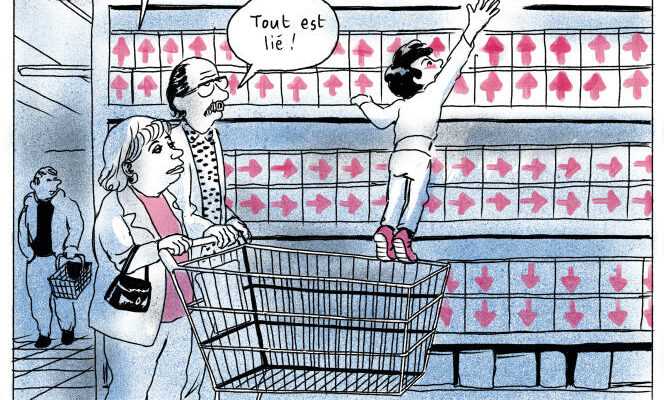Undermined by the Omicron wave, at the start of the year, and by the war in Ukraine, from the end of February, French growth remained completely sluggish in the first quarter: the gross domestic product (GDP) showed an evolution by 0% over the period, after a last quarter of 2021 at + 0.8%, according to figures published on Friday April 29 by INSEE. The slump in the French economy is clearer than expected: the statistical institute expected weak growth, around 0.3%.
At the same time, inflation continued its course: the rise in consumer prices reached 4.8% over one year in April, after 4.5% at the end of March. The harmonized price index, which allows comparison with other countries in the euro zone, rose by 5.4% over one year, while it was up by 5.1% in March. Thursday, April 28, inflation had reached 7.4% in Germany, a record level since reunification in 1990.
“The drop in consumption is greater than expected, which is causing overall activity to stagnateexplains Julien Pouget, director of economic conditions at INSEE. We have the conjunction of two exogenous shocks: the Covid, with the Omicron wave in January, which weighed on accommodation and catering, and the war in Ukraine, which reinforced inflation. »
Full-year growth is on the horizon ” soft “, says Mr. Pouget. It should, despite everything, benefit from a strong “gain effect”, specifies Mr. Pouget, given the good recovery of the last few months, which followed the weakness of the activity at the beginning of 2021. activity was nil for the rest of the year. It could nevertheless be lower than this figure, if the activity was negative over one or more quarters.
“Loss of purchasing power”
April data shows that the price increase is changing in nature. Focused first on energy, this “imported” inflation is now transmitted to all consumption items, in particular food and manufactured products. Negotiations at the start of the year between producers and distributors also contributed to the rise in food product prices. “We can imagine that we will have a significant rise in underlying inflation [c’est-à-dire hors énergie]»continues Mr. Pouget.
The impact of this price increase on purchasing power has contributed to the significant slowdown in consumption, the engine of the French economy. In March, the latter plunged by 1.3%, with households restricting their food purchases by 2.5% and their energy consumption by 1.6%. In total, the drop in purchases of food products explains nearly 40% of the decline in consumption. The French have also significantly reduced their spending on hotels and restaurants: after a recovery of 0.9% at the end of 2021, the drop reached 5.3% this quarter. Purchases of textiles, manufactured goods, transportation and recreational services are also down.
You have 52.3% of this article left to read. The following is for subscribers only.
